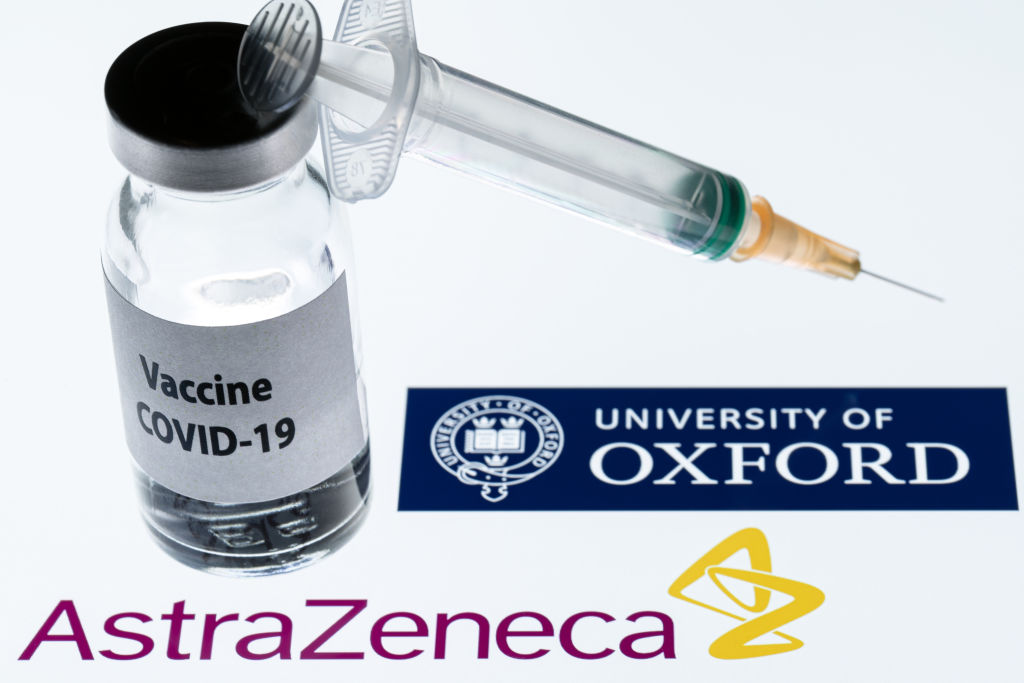The Oxford-AstraZeneca COVID-19 vaccine has 3 key advantages despite lower efficacy rate


A free daily email with the biggest news stories of the day – and the best features from TheWeek.com
You are now subscribed
Your newsletter sign-up was successful
The United Kingdom on Wednesday authorized the COVID-19 vaccine developed by the University of Oxford and AstraZeneca for use, joining the Pfizer-BioNTech shot, which has already been rolled out, as another tool in the country's massive vaccination drive. U.K. Health Secretary Matt Hanock said enough doses of both vaccines are on order to give the entire population two jabs, and he's "highly confident that we can get enough vulnerable people vaccinated by the spring that we can now see our route out of this pandemic."
Skeptics may want some caveats attached to that statement since the Oxford-AstraZenca vaccine had some mixed results in clinical trials. Data revealed earlier this month showed it was 62 percent effective in preventing symptomatic COVID-19 infections, which is not as high as the roughly 95 percent efficacy rate attributed to the Pfizer-BioNTech and Moderna candidates.
But the Oxford-AstraZeneca shot is nevertheless considered safe, and none of the volunteers developed a severe infection or were hospitalized, key metrics in determining the success of a vaccine. It also comes with a few key logistical advantages that could be a game-changer. It's cheap to produce, and unlike the Pfizer-BioNTech vaccine doesn't require ultra-cold temperatures for storage, which will make vaccine distribution easier, especially to rural communities. Finally, the gap between the first and second dose of the vaccine can be as long as 12 weeks, which means more people in the U.K. can receive an initial dose at an earlier stage, giving them some form of protection before the second. Read more at Reuters and The Wall Street Journal.
The Week
Escape your echo chamber. Get the facts behind the news, plus analysis from multiple perspectives.

Sign up for The Week's Free Newsletters
From our morning news briefing to a weekly Good News Newsletter, get the best of The Week delivered directly to your inbox.
From our morning news briefing to a weekly Good News Newsletter, get the best of The Week delivered directly to your inbox.
A free daily email with the biggest news stories of the day – and the best features from TheWeek.com
Tim is a staff writer at The Week and has contributed to Bedford and Bowery and The New York Transatlantic. He is a graduate of Occidental College and NYU's journalism school. Tim enjoys writing about baseball, Europe, and extinct megafauna. He lives in New York City.
-
 Political cartoons for February 16
Political cartoons for February 16Cartoons Monday’s political cartoons include President's Day, a valentine from the Epstein files, and more
-
 Regent Hong Kong: a tranquil haven with a prime waterfront spot
Regent Hong Kong: a tranquil haven with a prime waterfront spotThe Week Recommends The trendy hotel recently underwent an extensive two-year revamp
-
 The problem with diagnosing profound autism
The problem with diagnosing profound autismThe Explainer Experts are reconsidering the idea of autism as a spectrum, which could impact diagnoses and policy making for the condition
-
 Trump HHS slashes advised child vaccinations
Trump HHS slashes advised child vaccinationsSpeed Read In a widely condemned move, the CDC will now recommend that children get vaccinated against 11 communicable diseases, not 17
-
 FDA OKs generic abortion pill, riling the right
FDA OKs generic abortion pill, riling the rightSpeed Read The drug in question is a generic version of mifepristone, used to carry out two-thirds of US abortions
-
 RFK Jr. vaccine panel advises restricting MMRV shot
RFK Jr. vaccine panel advises restricting MMRV shotSpeed Read The committee voted to restrict access to a childhood vaccine against chickenpox
-
 Texas declares end to measles outbreak
Texas declares end to measles outbreakSpeed Read The vaccine-preventable disease is still spreading in neighboring states, Mexico and Canada
-
 RFK Jr. shuts down mRNA vaccine funding at agency
RFK Jr. shuts down mRNA vaccine funding at agencySpeed Read The decision canceled or modified 22 projects, primarily for work on vaccines and therapeutics for respiratory viruses
-
 Measles cases surge to 33-year high
Measles cases surge to 33-year highSpeed Read The infection was declared eliminated from the US in 2000 but has seen a resurgence amid vaccine hesitancy
-
 Kennedy's vaccine panel signals skepticism, change
Kennedy's vaccine panel signals skepticism, changeSpeed Read RFK Jr.'s new vaccine advisory board intends to make changes to the decades-old US immunization system
-
 Kennedy ousts entire CDC vaccine advisory panel
Kennedy ousts entire CDC vaccine advisory panelspeed read Health Secretary RFK Jr. is a longtime anti-vaccine activist who has criticized the panel of experts
